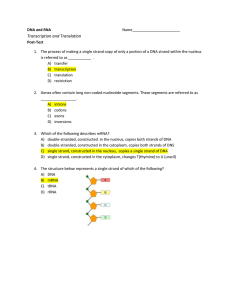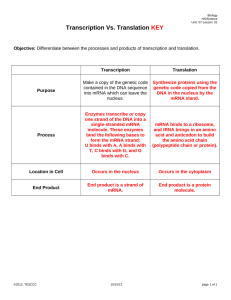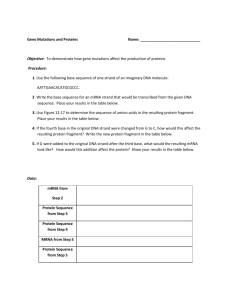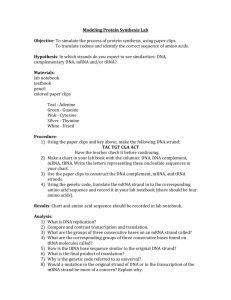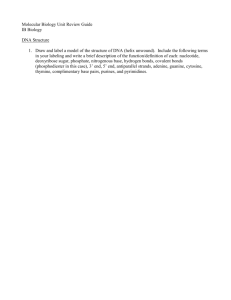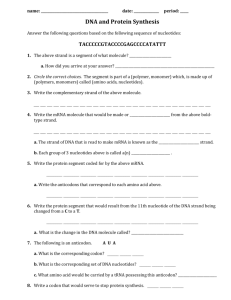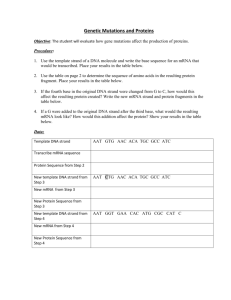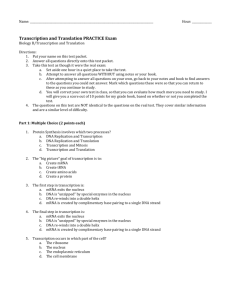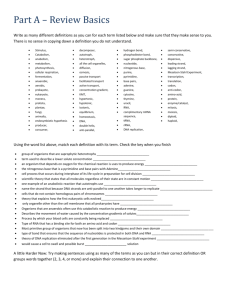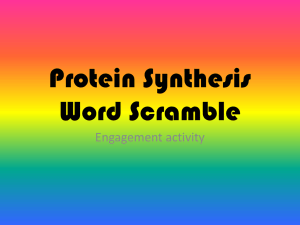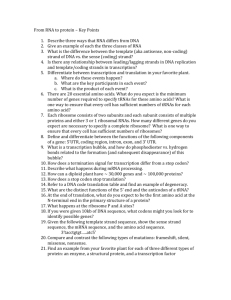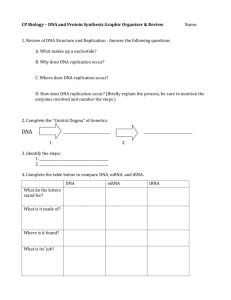DNA, RNA Transcription & Translation Post-Test
advertisement
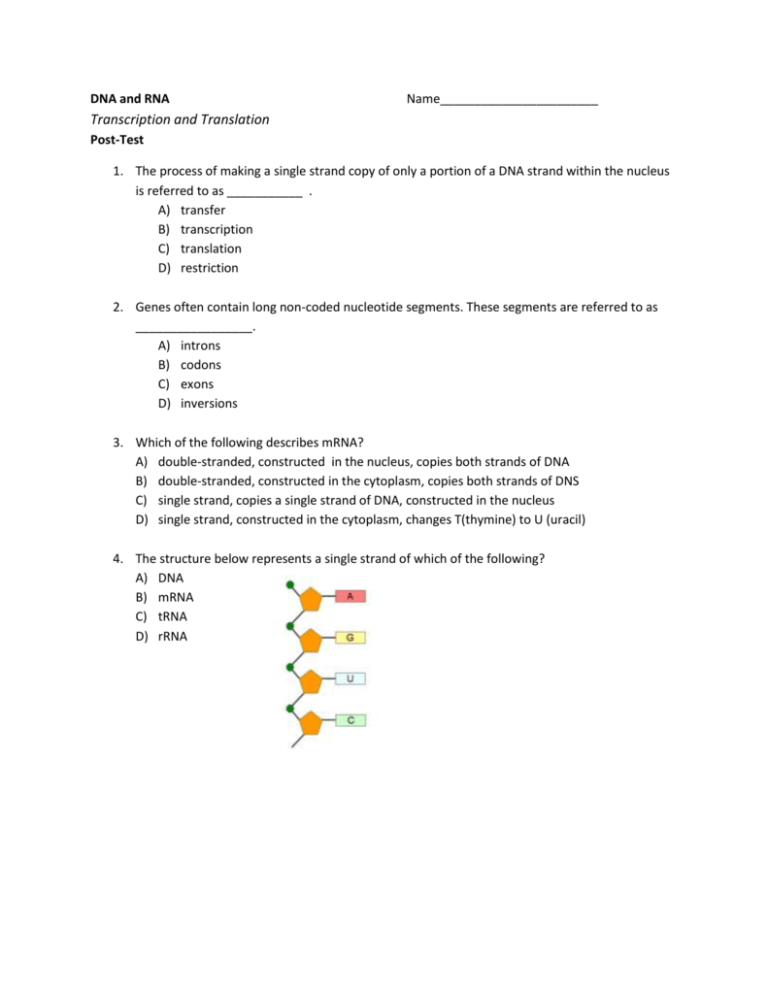
DNA and RNA Name_______________________ Transcription and Translation Post-Test 1. The process of making a single strand copy of only a portion of a DNA strand within the nucleus is referred to as ___________ . A) transfer B) transcription C) translation D) restriction 2. Genes often contain long non-coded nucleotide segments. These segments are referred to as _________________. A) introns B) codons C) exons D) inversions 3. Which of the following describes mRNA? A) double-stranded, constructed in the nucleus, copies both strands of DNA B) double-stranded, constructed in the cytoplasm, copies both strands of DNS C) single strand, copies a single strand of DNA, constructed in the nucleus D) single strand, constructed in the cytoplasm, changes T(thymine) to U (uracil) 4. The structure below represents a single strand of which of the following? A) DNA B) mRNA C) tRNA D) rRNA 5. Study the diagram below. Match the letter of each item to its name. A. B. E. D. C. ____Newly constructed protein ____DNA ____Cell nucleus ____Ribosome ____mRNA 6. Match the correct mRNA sequence to this DNA sequence to be copied- CTGCAT. A. GACGUA B. AUTAUG C. CUGCAU D. GUCGAU 7. How many condons, or “words” are represented in the sequence above? A. 6 B. 3 C. 4 D. 2 8. AUGGCA is code for methionine and alanine. This is referred to as ____________. A. Mutation B. Transcription C. Translation D. Transfer 9. Which organelle does messenger RNA attach to in order to build new proteins? A. Golgi apparatus B. Ribosome C. Nucleus D. Mitochondria 10. ______ serve the process of building proteins by attaching to specific amino acids in the cytoplasm and delivering them to the protein building site. A. tRNA B. mRNA C. DNA D. rRNA 11. The tRNA anticodon for the codon mRNA UGU is _______. A. ACA B. TCT C. GUG D. TGT 12. Structure I below represents which of the following? A) mRNA B) amino acid C) anticodon D) DNA molecule 13. Structure III above represents the process of _______________. A) transcription B) replication C) monoploidy D) translation 14. When a single base pair on a strand of DNA is replaced by a different base pair, this is referred to as a __________________ mutation. 15. When a base pair is added or deleted on the DNA strand, this is referred to as a _____________________________ mutation.
